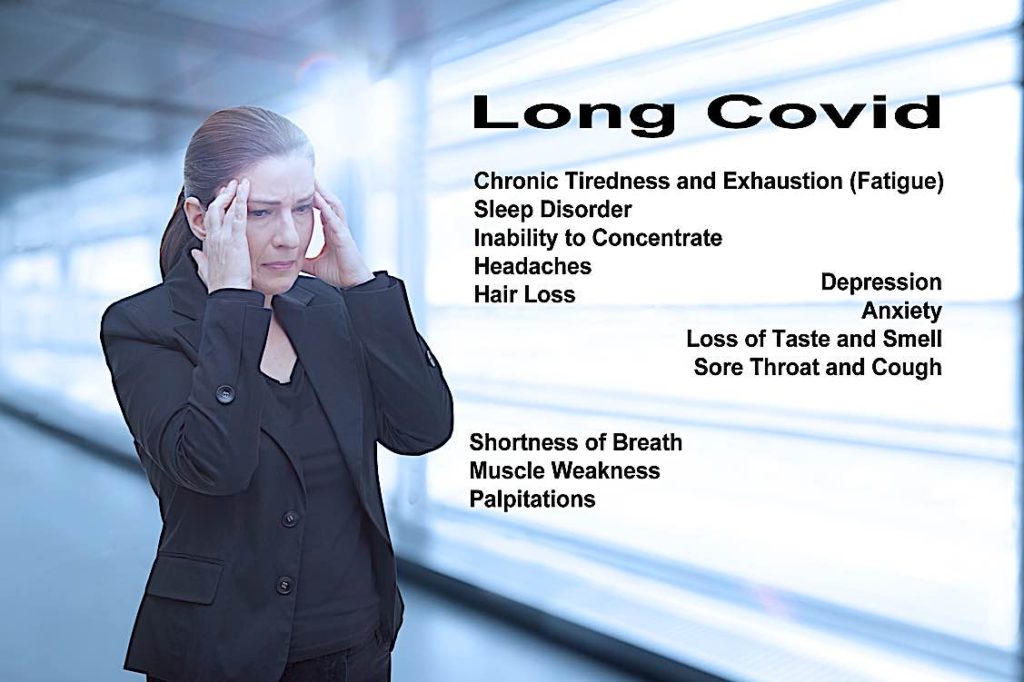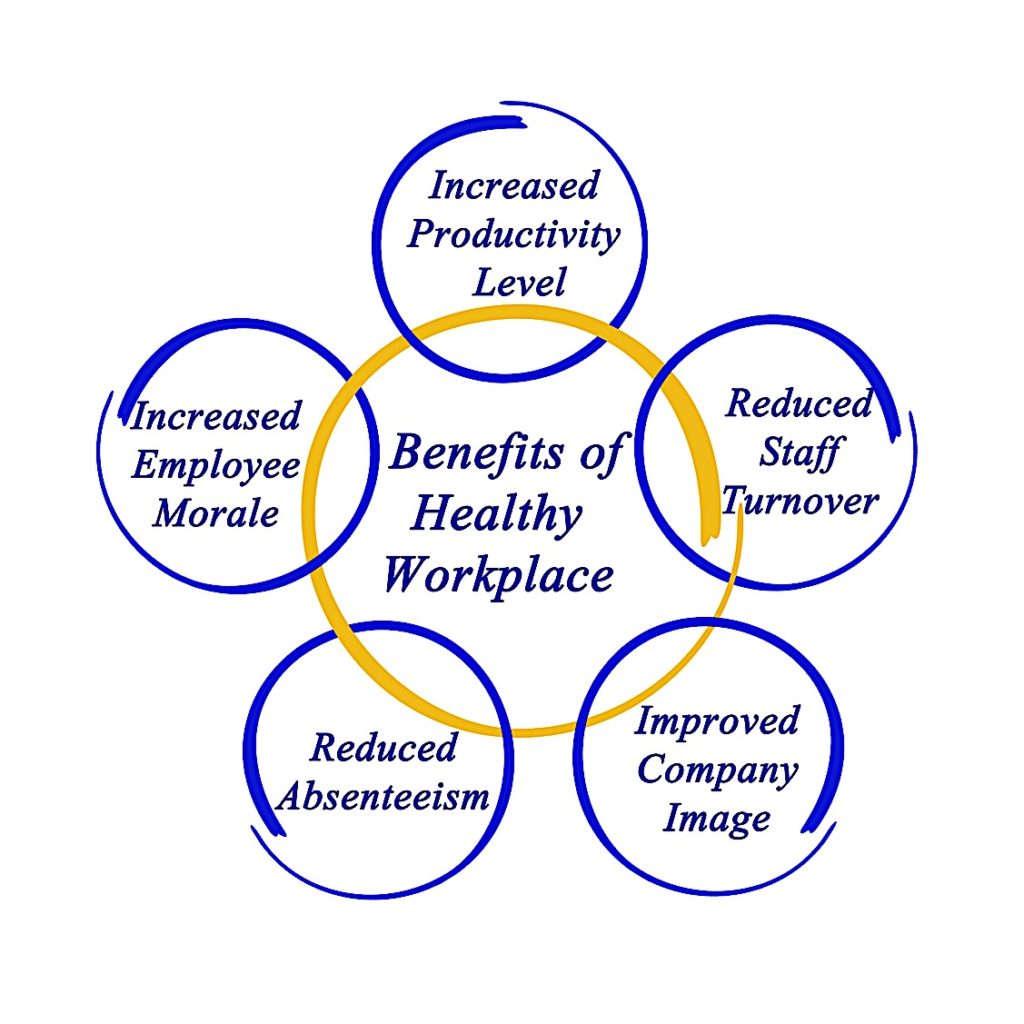
COVID-19 Long-Haulers: How Employers and HR Managers Can Help With Post Acute COVID Syndrome Among Team-Members
A COVID-19 long hauler is someone who was infected with the virus and although no longer infected, can still continue to suffer the effects for months later. This can affect an employee’s professional and personal life for a long time afterward, and employers along with HR managers can play a key supporting role.
Post Acute COVID Syndrome
Also called Post Acute COVID Syndrome, when someone experiences the negative effects of coronavirus for longer than four weeks since their symptoms began, then they are a COVID long-hauler and their symptoms may last for many months.[1] Symptoms may include:
- constant fatigue
- chest pain
- joint pain
- and additional health complications from a COVID infection.
As many as 10% of COVID patients could be long-haulers according to some estimates.[2]
Employers and HR Managers should educate their teams on support currently available and investigate additional benefits for sufferers. While Canadian healthcare may cover many issues, International employers and US employers and HR managers should become familiar with coverages in the Americans with Disabilities Act (ADA) along with the Family and Medical Leave Act (FMLA), and with such a crucial part to play, there are some key things that employers and HR management — and Payroll Managers through expanded Benefits programs — can do to help.[3]
Here are the key ways that employers can help COVID long-haulers:
Improve Awareness
Part of supporting employees who are battling Post Acute COVID Syndrome is to communicate and ensure that all relevant personnel, from supervisors to managers, are aware of the effects that long-haul COVID has on someone’s health to create a more understanding environment regarding absence and loss of productivity.
Other features on COVID-19 and the workplace :
- Covid-19 Vaccinations: Can Employers Mandate Employees In Canada? HR Management Series
- How Has COVID-19 Changed the Work-Life Balance HR Discussions; HR Management and Employers More Flexible and Supportive: Poll
- Covid-19 Reopening Strategies Will Include Remote Working and Increased HR Outsourcing
- What Will the Post-COVID Workplace Look Like? From Hot-Desking to Outdoor Offices: HR Management
- Covid-19 Reopening Strategies Will Include Remote Working and Increased HR Outsourcing
- How Covid-19 Inspired Changes to Pay and Performance Reviews
Consult with Medical Carriers
It is recommended that employers and HR management consult with medical carriers or vendors regarding the specific protocols for supporting and assessing sufferers of long-haul COVID.

Gain Access to Post-COVID Clinics
If possible, ensure that your business is able to leverage post-COVID clinics that are able to provide employees with access to virtual care.
Be Accommodating to Long-Haulers
It is essential that as employees return to the workplace that company policies and procedures are adapted to help affected employees manage their symptoms. It may be necessary to consider both the physical and cognitive demands on employees through a Physical Demands Analysis (PDA) and by consulting with their physician to understand the relevant work restrictions.

Make Working from Home Easier
When employers allow long-haulers to continue working from home as a means to accommodate their disability, employers need to make an effort to ensure that the employee’s home office is set up as ergonomically to both make working easier and to avoid injuries such as RSI.
Other features on remote work:
- HR Management: How to Recognize and Inspire Your Remote Team with an HR Project Approach
- Fighting Loneliness — How HR Managers can Inspire Their Remote Team and Prevent the Feeling of Isolation
- Gartner Highlights 9 Tips for Managing Remote Employees During & After COVID-19
- Best Practices for Helping Remote Workers Maintain Work-Life Balance
- How Has COVID-19 Changed the Work-Life Balance HR Discussions; HR Management and Employers More Flexible and Supportive: Poll
Focus on Cross-Training
By identifying and utilizing opportunities to cross-train other staff members, when an employee requires additional time off to manage the effects of long-haul COVID, disruption to the work environment can be limited, reducing the amount of stress experienced by both the affected employee and those who need to fill in for them in their absence.
Through all of this, it is important that an open line of communication be maintained between the affected employee and HR management. HR will need to make sure that the employee is aware of any employee resource groups that are offered, as well as all support resources and work-life benefits that may assist them with childcare and meal delivery services.
Do you need help managing a Long-Haul Covid-19 Team Member? Contact the experts at Pivotal:
Contact Pivotal
Notes and Citations
[1] Nature Medicine, “Post-acute COVID-19 syndrome”, March 22, 2021.
[2] JAMA Network, “As Their Numbers Grow, COVID-19 “Long Haulers” Stump Experts”, September 23, 2020.
[3] AON, “Supporting COVID-19 Long Haulers>>


 Our HR solutions experts can recommend the right mix of HR outsourced services to make your entry into Canada easier.
Our HR solutions experts can recommend the right mix of HR outsourced services to make your entry into Canada easier.  Pivotal Employment Management Services co-hires your workforce, simplifying entry of your business in Canada.
Pivotal Employment Management Services co-hires your workforce, simplifying entry of your business in Canada. 















